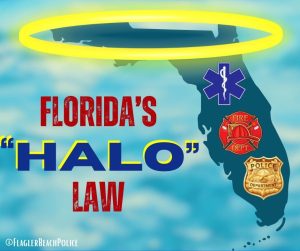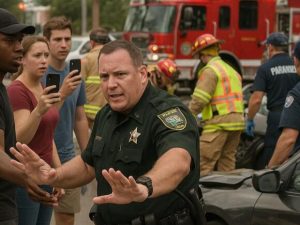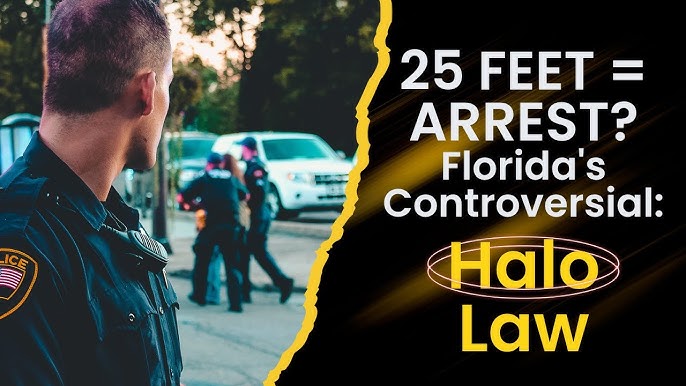Florida just passed something new called the “HALO Law.” It kicked in January 1, 2025.
It’s supposed to protect first responders — police, firefighters, EMTs — when they’re handling emergencies.
But like with most laws, the real deal is in the details. Here’s what’s good, what’s risky, and what you need to watch out for.
What the HALO Law Does
 It forces people to stay at least 25 feet away from first responders who are actively doing their jobs.
It forces people to stay at least 25 feet away from first responders who are actively doing their jobs.
If someone steps into that zone after being warned, they can be charged with a second-degree misdemeanor.
Penalties: up to 60 days in jail and fines up to $500.
The law covers harassment, threatening, or interfering with first responders. But to enforce it, there must be “specified intent.”
Before someone can be penalized, they must first receive a verbal warning to back off.
Why It’s Being Pushed
Supporters say it’s common sense: when someone is down or crime is happening, you don’t need civilians crowding the scene, making things harder, or putting people in danger.
First responders say this gives them space to work — no distractions, no people in their way, no interference.
The Risk Areas & Pushback
This law also raises red flags. Because laws look good on paper, but trouble shows when they’re used.
Vague Language & “Intent”
What does “specified intent” even mean? The law says you have to willfully approach with intent to interfere, harass, or threaten. But proving what someone intended in a chaotic scene is tough.
If someone inadvertently steps forward or moves closer without meaning harm, does that count? Will law enforcement treat it that way? The law’s wording leaves room for abuse.
Recording, Oversight & Free Speech Concerns
One big worry: does this law block people from filming first responders? The law doesn’t explicitly ban recording, but because it prohibits being within 25 feet after a warning, some say it could be used to silence witnesses or restrict oversight. 
In fact, prosecutions under HALO have already started. Some people charged say they weren’t even warned clearly, or didn’t know about the law.
There’s a concern that this law might be misused in public encounters to make it harder for people to hold authority accountable.
What You Should Do If You’re in Florida
Always keep distance. If you see first responders working, don’t try to get close.
If someone tells you to step back, do it. Even if you think you’re not doing anything wrong.
If a ticket or arrest happens under this law, hire a lawyer. The legal fights will likely revolve around intent, warnings, and whether your actions were lawful.
Watch how this law gets used over time. It might be challenged in courts.
My Take
I get why Florida did this: first responders need space to do their jobs. But when you pass a law that loosely defines “harass” or “interfere,” you open up a lot of ways it can be twisted.
To me, the most dangerous part is when everyday people — people just trying to see what’s happening, sometimes filming — become collateral damage. You don’t want people afraid to record police doing wrong because they might get arrested.
This law is new. It’s going to be tested. And how it gets enforced will tell us whether it’s protection or suppression.
Stay alert. Stay informed. And don’t let fear keep you silent.
